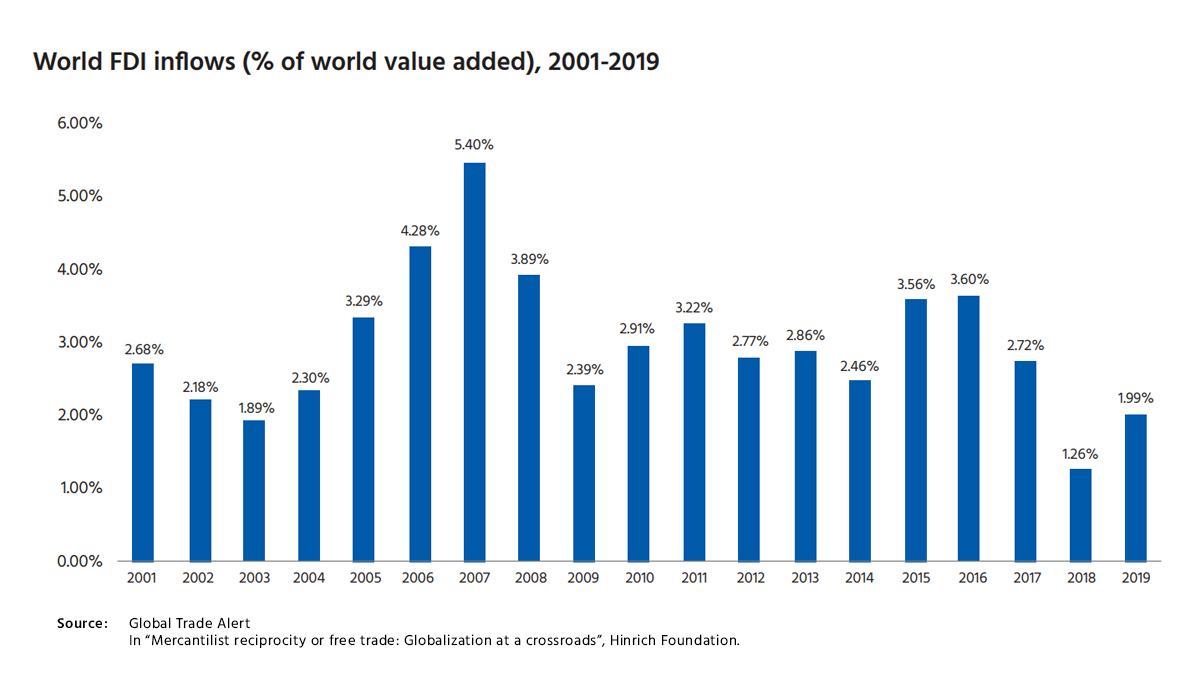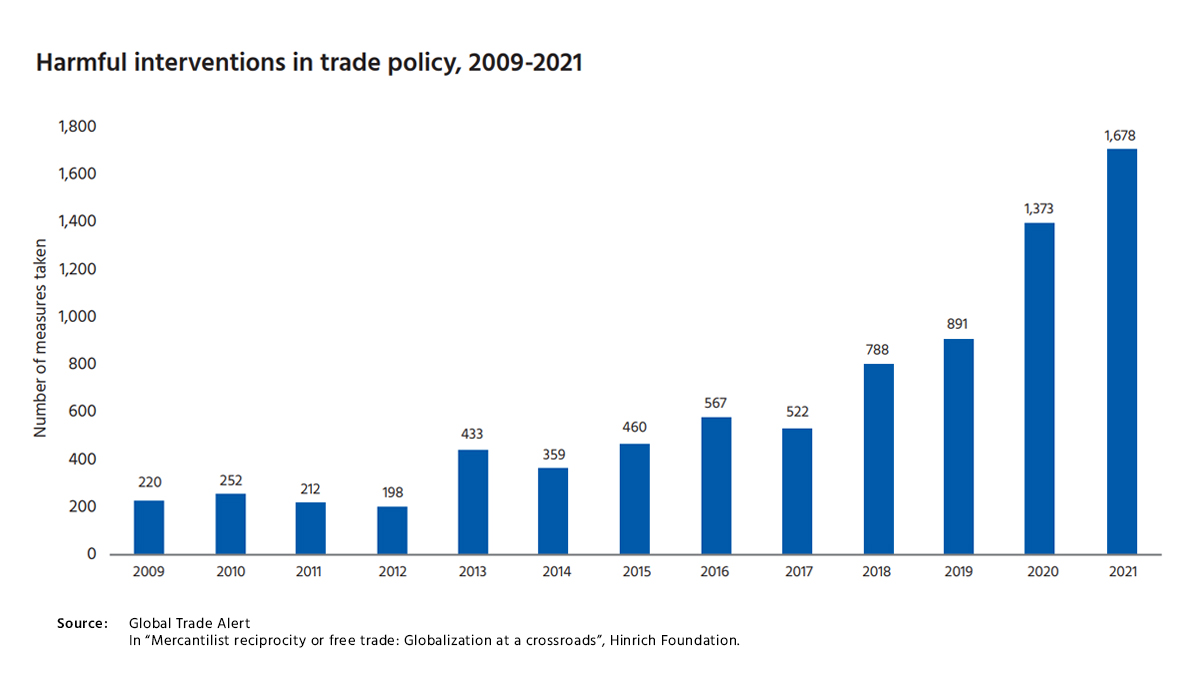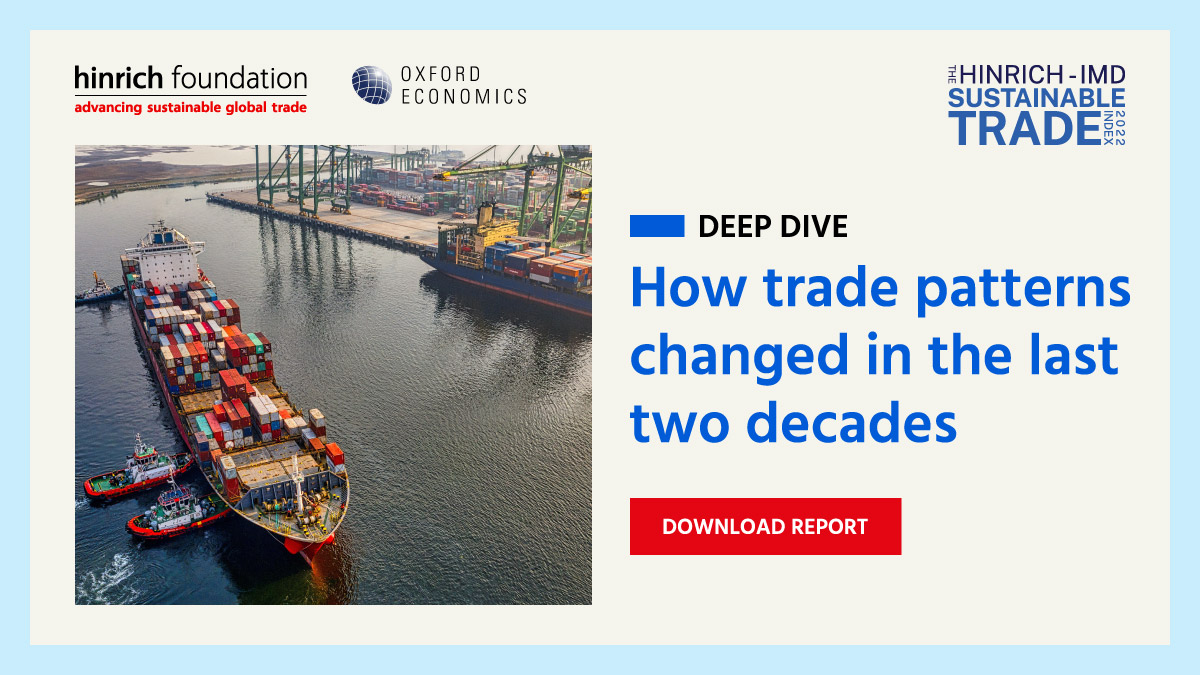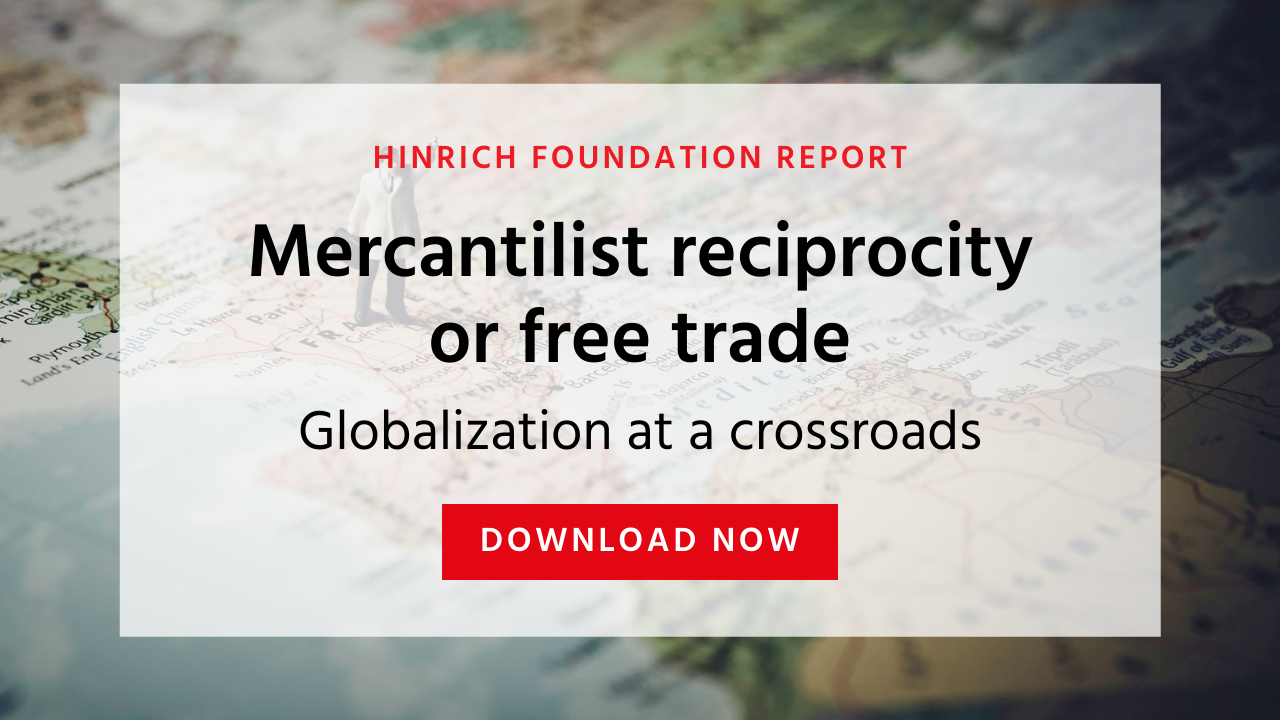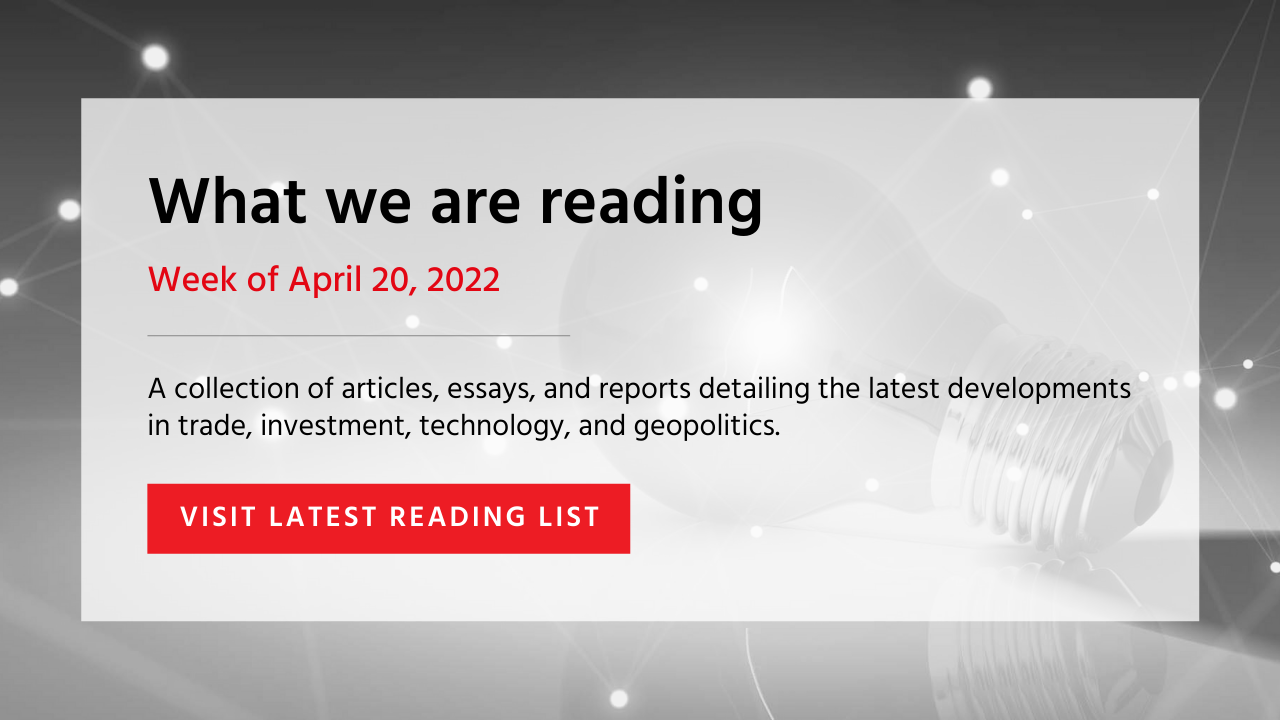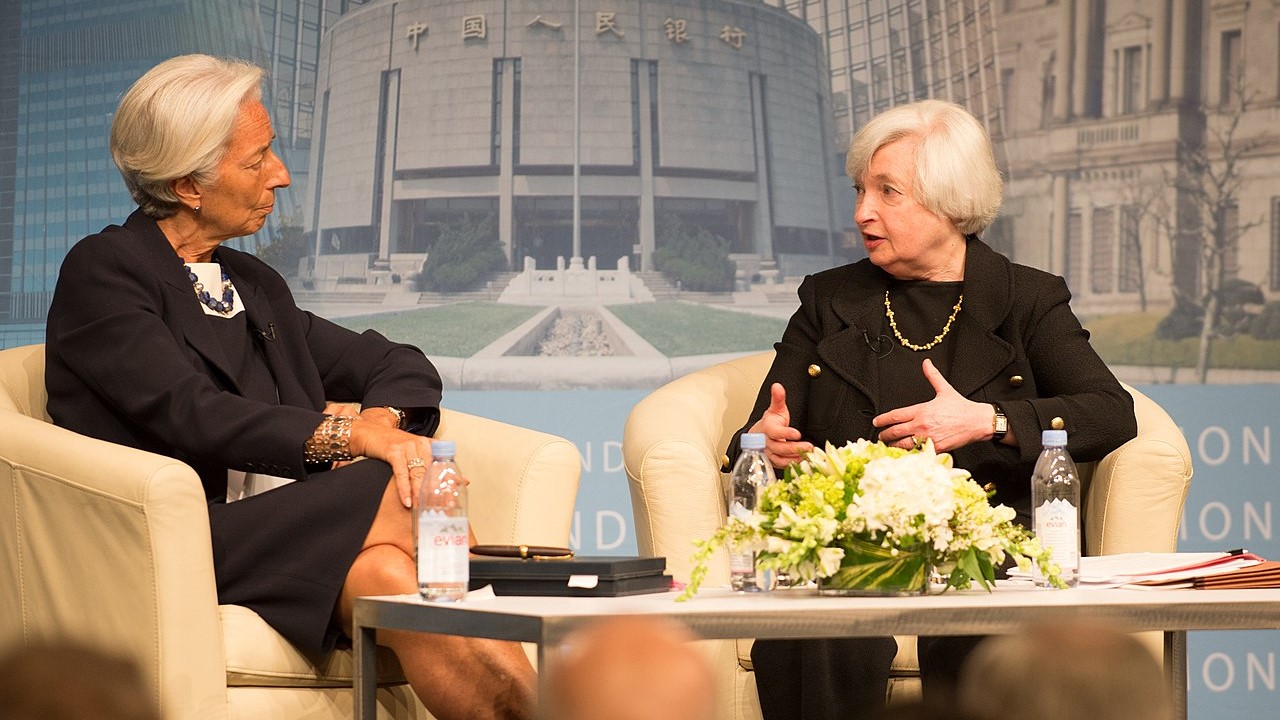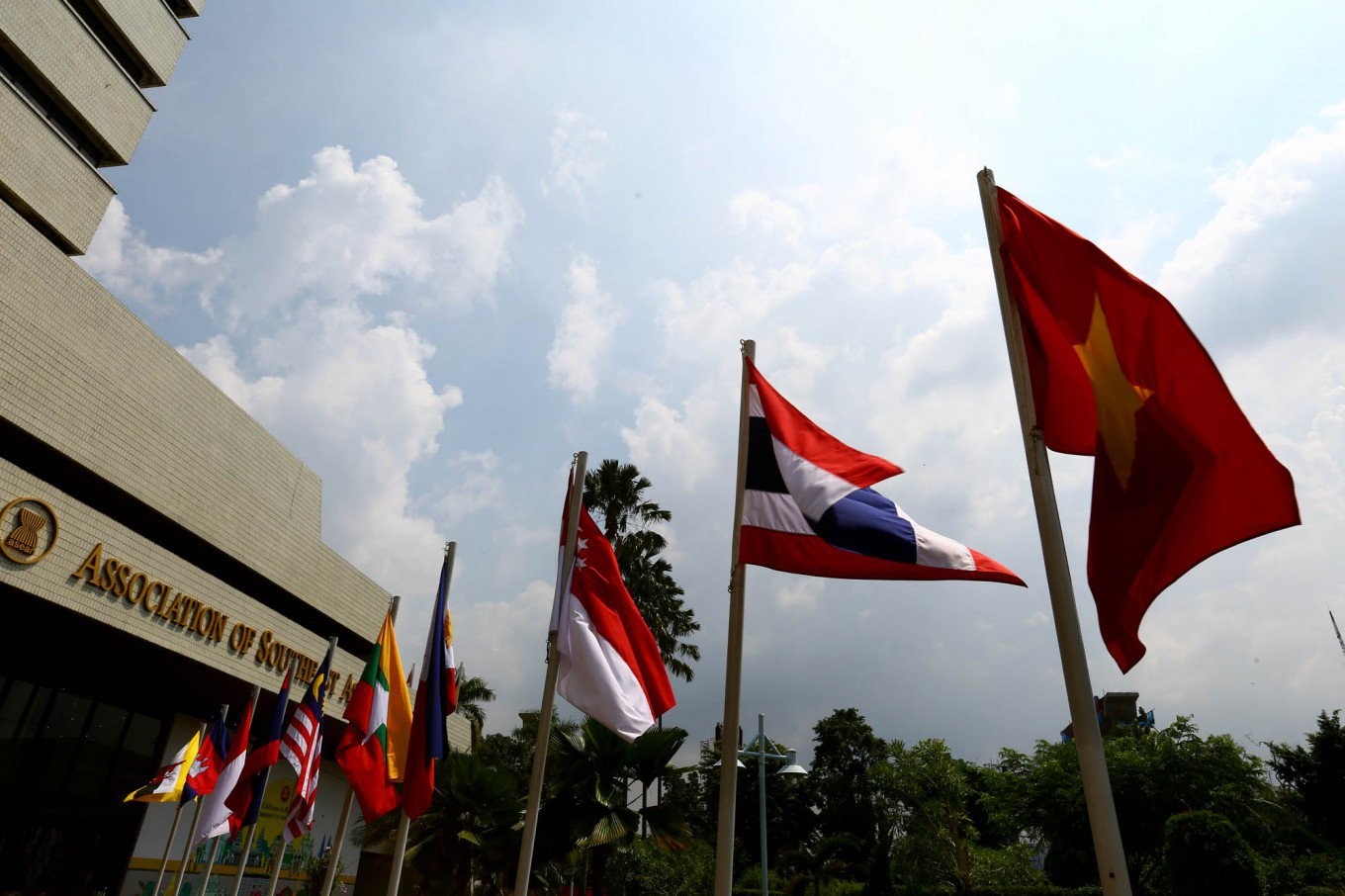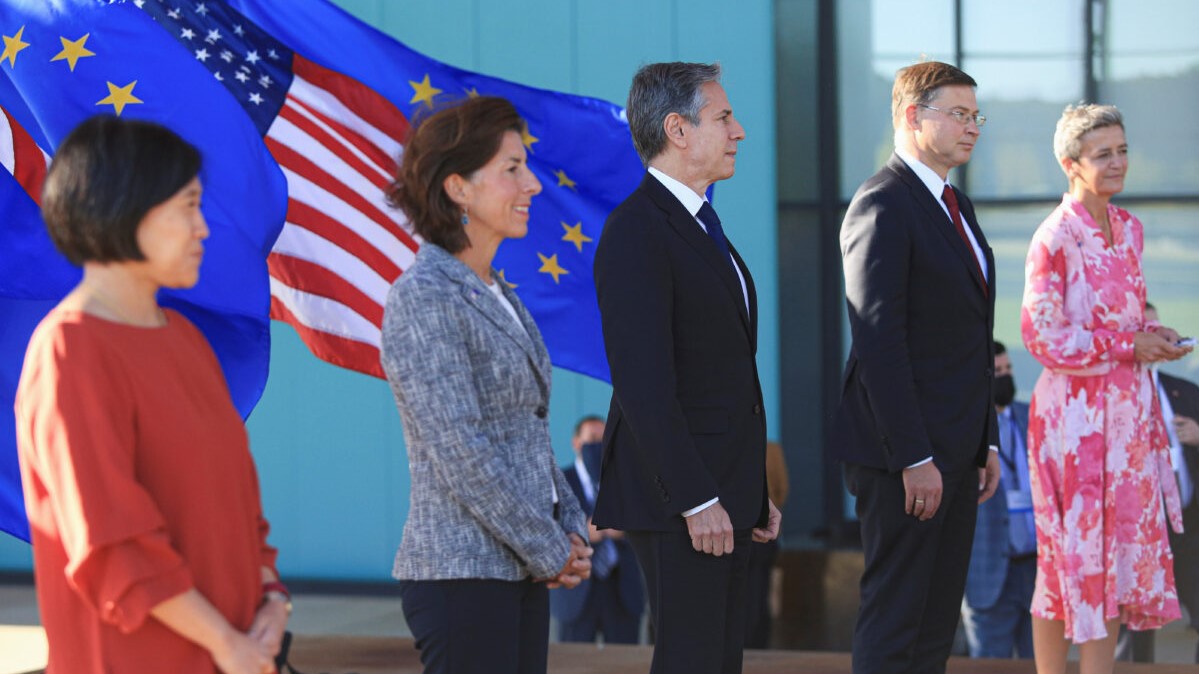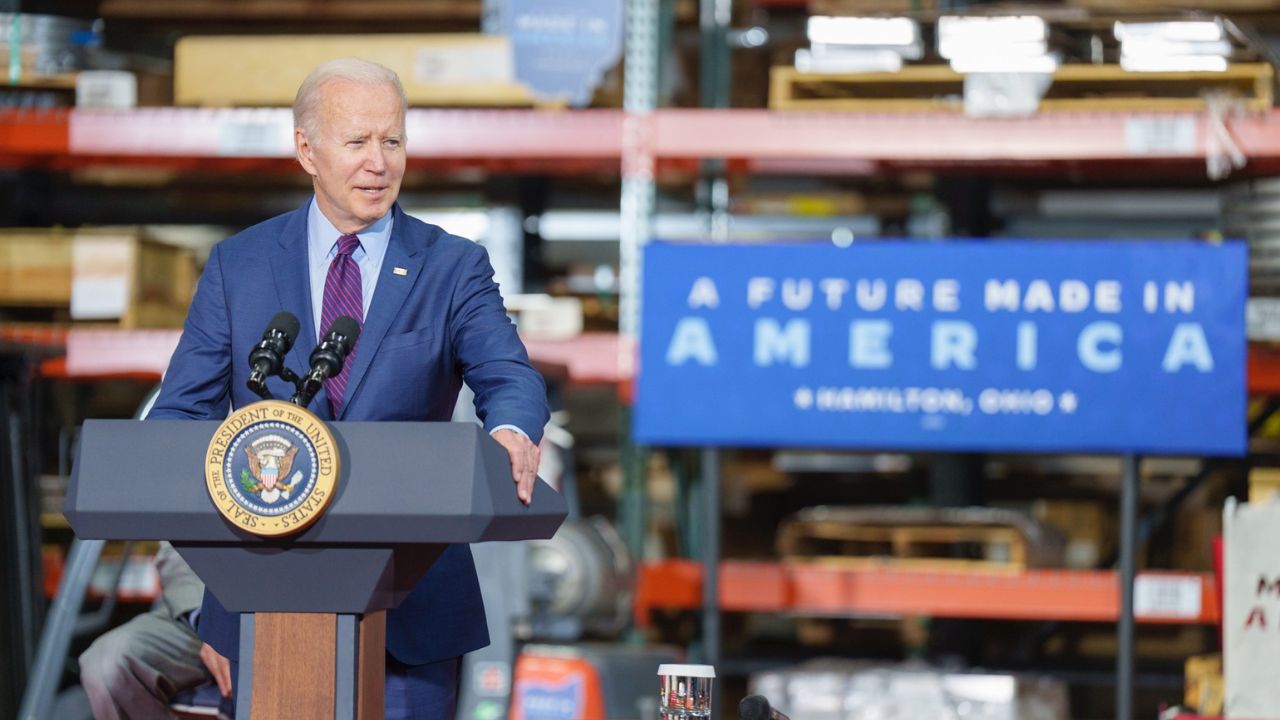Trade and geopolitics
Entering a New Era of Globalization
Published 06 June 2023
With increasing geopolitical tensions, supply chain disruptions, and external shocks such as Russia’s war with Ukraine and a global pandemic, has globalization come to an end? Trends of reshoring, nearshoring, and friend-shoring are emerging but what are the consequences for global trade? Has globalization peaked and are we beginning to witness a preference for regionalization and localization instead?
This page presents a compilation of resources by the Hinrich Foundation’s research fellows and contributors on the current outlook towards globalization. This series brings attention to the rapidly changing developments in international relations and inter-state relations. The articles serve to offer a comprehensive analysis on the current state of globalization. Explore the series to learn more.
If foreign direct investments (FDI) are taken as a measure of global integration, the data suggests that world FDI inflows have peaked in 2007 just before the global financial crisis and great recession. Since then, FDI inflows have decreased drastically hovering at near 20-year lows.
Globalization was also catalyzed by the liberalization of markets around the world. Free flow of goods and services allowed economies to leverage their comparative advantages and as a result, flourish. However, between 2017 and 2021, the number of protectionist undertakings increased by 220%, steadily rising from 522 in 2017 to 1,678 in 2021, posing a great challenge to globalization as reported by Daniel Ikenson.
Featured publications:
How trade diversification changed in the last two decades
Of the 30 economies analyzed in the Hinrich-IMD Sustainable Trade Index 2022, most have an unconcentrated level of trade diversification. But one major shift that has occured in the last two decades has created wide repercussions for sustainable commerce: an increasing reliance on China as a global factory.
The rising role of services in global trade
It has become fashionable to argue that globalization is in decline. The picture is more nuanced, however. While trade in manufactures as a proportion of overall economic activity appears to have peaked in some countries, the growth of trade in services as a proportion of GDP has certainly not slowed.
Friend-shoring pharmaceutical supply chains: The road to India
In 2022, China's Covid-related lockdowns paralyzed the global supply of key pharmaceutical products. The events, combined with geopolitical competition and macroeconomic demands, are spurring a rethink on the shape of global supply chains. In the pharma industry, India could emerge as a destination in the US' new "friend-shoring" strategy.
What went wrong with globalization?
The global order has moved from an unipolar leadership to a multipolar rivalry characterized by Great Power competition. The circumstances which helped facilitate the deepening of international economic engagement since the late 20th century are now in reverse.
China’s overseas economic and trade cooperation zones
Under the Belt and Road Initiative, China has developed overseas economic and trade cooperation zones with the stated aim of promoting economic growth and international collaboration. However, the actual performance of these zones is still under debate—specifically their impact on the host countries’ investments, trade, sustainability, and integration in the global supply chain.
Mercantilist reciprocity or free trade: Globalization at a crossroads
The global trading system was built on the shaky foundation of mercantilist reciprocity. However, this approach has reinforced a flawed way of thinking about trade that explains the rise of protectionism, argues Daniel Ikenson. Trade barriers ultimately impede domestic businesses, workers, and consumers. Read on to find out more.
Friend-shoring strategies shouldn’t count China out … yet
While friend-shoring, near-shoring, or re-shoring may pass off as a happy-sounding moniker, the core issues are principles of tradability. Infrastructure and transport costs need to be considered seriously, along with manufacturing and labor costs. China is a large player in international trade and its future will depend on how fast countries and regions scale up, argues Willy Shih.
The future of globalization, sanctions, and supply chains
How will the transformation of supply chains affect globalization in the future? What is the impact of international sanctions on Russia? This resource compiled by the Hinrich Foundation’s International Trade Research team shares what we are reading.
Yellen, Lagarde, and the death of the global trade system
The prioritization of friends and values in global trade took center stage in an exchange between Janet Yellen and Christine Lagarde, suggesting a fundamental shift in US-EU trade strategy. Learn more from Senior Research Fellow Stephen Olson’s analysis on the future of US-EU trade relations.
To ease ASEAN’s import dependency, strengthen intra-ASEAN trade
Amidst the US-China trade war and rising geopolitical tensions, Southeast Asia’s economic performance might depend on greater vertical integration and intra-ASEAN connectivity. How might ASEAN response to this changing dynamic? Learn more from Research Fellow Stewart Paterson’s analysis on the shifting trade dynamics in Southeast Asia.
The hidden costs of friend-shoring
The narrative of friend-shoring in US trade policy reveals little as to what the US means by that. Should the government seek to intervene in a supply chain, they must make a case that they observe the risks better than firms do, argues Halit Harput. Read on to find out more about the hidden costs of friend-shoring.
Forget about free trade agreements
The allure of traditional trade and investment liberalization is rapidly waning, especially in the United States where free trade agreements are now considered politically toxic, argues Senior Research Fellow Stephen Olson. Industrial policy and amorphous economic frameworks agreements have replaced market access commitments in the US strategy.
© The Hinrich Foundation. See our website Terms and conditions for our copyright and reprint policy. All statements of fact and the views, conclusions and recommendations expressed in this publication are the sole responsibility of the author(s).

